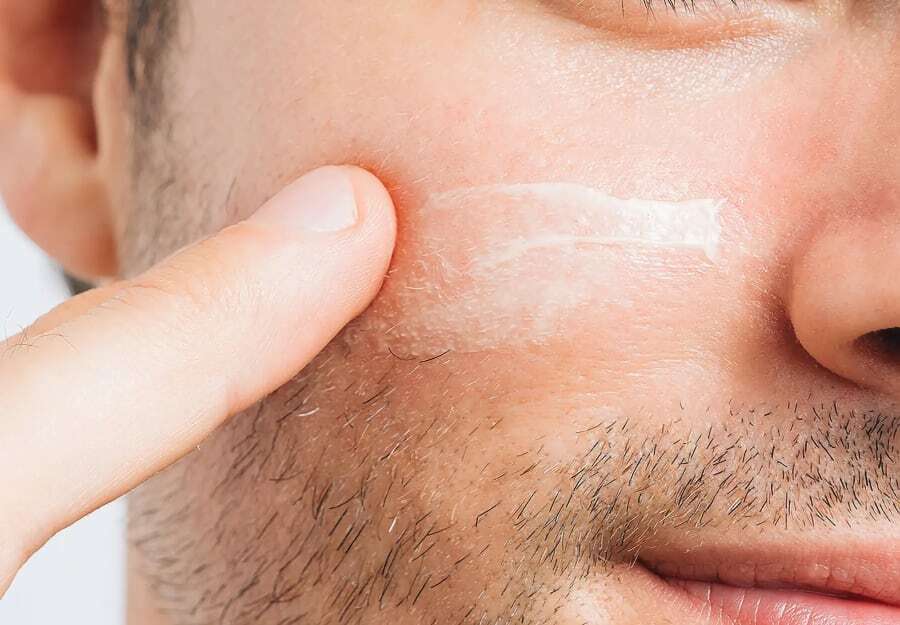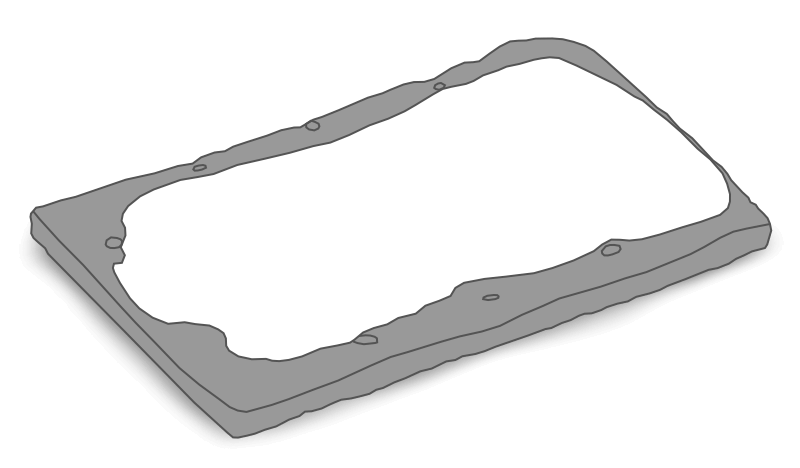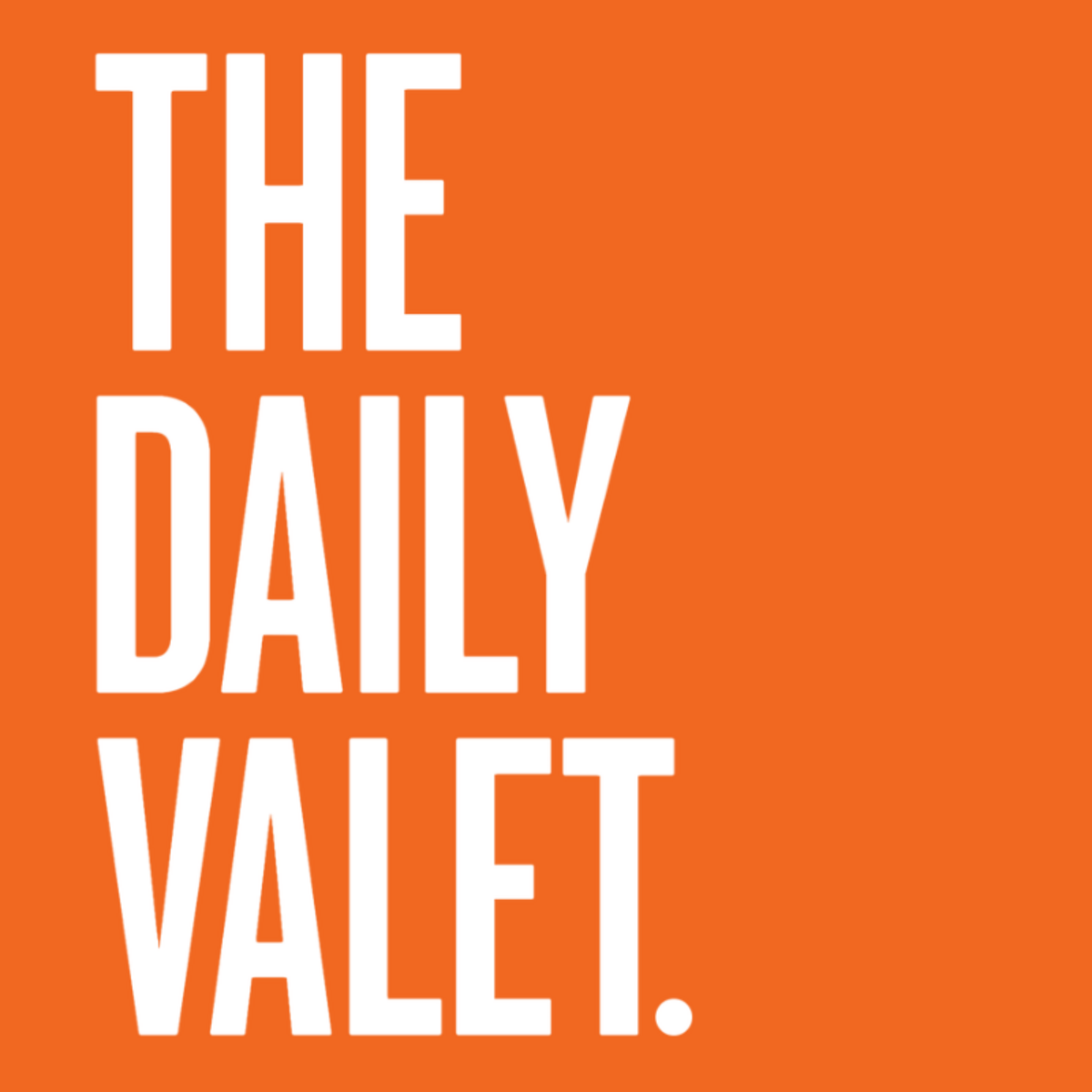Thursday, February 15th Edition |

|
By Cory Ohlendorf, Valet. EditorIt's just a small mention, but you're going to want chicken tenders after reading today's newsletter. |
Today’s Big Story
We No Longer Hang Out
America is facing a crisis of social fitness. Adults need to relax and do nothing together, just like kids do.

“What are you doing tonight?” If you were just asked this in real life … would you be honest? Would you take someone up on their offer to hang out, or would you panic? Maybe come up with a quick and flimsy excuse. I wouldn’t blame you. In fact, I might be in the latter camp, myself. I’m social, but I like to plan for it and if I was anticipating a relaxing night at home, a sudden hang session might sound like work.
But maybe we, as a society, aren’t hanging out enough. Look around you … everyone’s in their own world, drawn into their phone screens (with earbuds blocking out the sounds of the world around them). And, according to The Atlantic, too much aloneness in America is creating “a crisis of social fitness”.
Derek Thompson writes that in its earliest decades, the United States was celebrated for its citizens’ extroversion. Americans seemed adept at forming social groups: political associations, labor unions, local memberships. “It was as if the continent itself had imbued its residents with a vibrant social metabolism—a verve for getting out and hanging out.” But sometime after the 1970s, American dynamism declined. Americans moved less from place to place. They stopped showing up at their churches and temples. In the 1990s, the sociologist Robert Putnam recognized that America’s social metabolism was slowing down. In his book, Bowling Alone, he gathered reams of statistical evidence to prove that America’s penchant for starting and joining associations appeared to be in free fall. Book clubs and bowling leagues were going bust.
Maybe we’re all too career-focused. Perhaps those old school activities sound like too much work. And that’s okay. It’s well-documented that friendships improve our physical and mental health and are vital for well-being. But you don’t have “do something” to spend time with people you like. In fact, professor and best-selling author Sheila Liming told Slate that we all need to be spending unproductive, unstructured time doing nothing with other people. Kinda like how we did as kids.
Her book, Hanging Out is meant to be not only diagnostic but instructive. It offers some practical tips to encourage readers to hang out more: separating from devices, carving out time in your life that is unscheduled and unproductive. “Hanging out requires the repeated exertion and application of one’s social capacities,” she writes. “That can feel exhausting.” But for the future we all want—we all need—it is crucial to use the energy we’ve drawn from previous hangs, the memories of those good times, to push ourselves to commit, and recommit, to lives of “sociability and mutual affection”.
FYI: |
In 1990, 63% of Americans reported having five or more close friends. In 2021, less than 38% did. |
National Security Warning Involves Russian Space Weapon
Russian efforts to create anti-satellite weapons are definitely a cause for concern
The U.S. has informed Congress and allies in Europe about Russian advances on a new, space-based nuclear weapon designed to threaten America’s satellite network, the Associated Press and other outlets reported Wednesday.
Such a weapon could destroy civilian communications, surveillance from space and military command-and-control operations used by the U.S. and its allies. And at the moment, the U.S. cannot defend its satellites from such a weapon, one former official told PBS News Hour. The system remains under development and is not yet in orbit—it’s not clear how far the technology has progressed. But a separate U.S. official told CNN the threat does not involve a weapon that would be used to attack humans.
However, the new intelligence (which officials have not described in detail) has raised serious questions about whether Russia was preparing to abandon the Outer Space Treaty of 1967, which bans orbital nuclear weapons. Concerns about placing nuclear weapons in space go back generations. The U.S. experimented with versions of the technology but never deployed them, and Russia has been developing its space-based capabilities for decades.
Meanwhile: |
Russian leader Vladimir Putin said Wednesday that he prefers President Biden win the 2024 election over former President Trump. |
Is the East Coast Sinking?
Scientists say America’s eastern shoreline, from New York to Norfolk, is silently slipping away
Well, this is a little alarming: New satellite-based research reveals how land along the coast is slumping into the ocean, compounding the danger from global sea level rise. And, the New York Times reports, a big reason why is the over-pumping of groundwater. Their interactive map stretches down the coast and shows just how deep places like Boston and New York, as well as Charleston and even Miami are sinking.
According to Popular Mechanics, critical infrastructure in cities like New York, for example—including the two major airports and its runways, railway systems, and vast areas containing building foundations and pipelines—are sinking faster compared to nearby relatively stable ground, increasing risks. “The effects of these right now and into the future are potential damage to infrastructure and increased flood risks,” one researcher said.
Scientists point to a depletion of groundwater as one of the biggest causes. A “layer cake of overlapping aquifers extends from New Jersey to Florida along the coast, providing a reliable source of water for drinking, irrigation and industrial uses.” While the region gets regular rainfall, deeper aquifers below clay or bedrock can take hundreds or thousands of years to recharge once water is pumped out. Once water is removed, soils can compress and collapse, causing the land surface to sink. And cities built on drained marshland or fill are especially vulnerable to compaction.
Early Adopters Are Returning Their Vision Pros
Stories have flooded the internet with tragic tales of regret and sore faces
This month, Apple released its first truly anticipated product in years, the Apple Vision Pro. It’s a groundbreaking device, with some of the best hardware specs and the most impressive performance of any commercial headset ever released. And if you got one on the day it was released, but are now having reservations, Apple’s 14-day return policy means that today is your last chance to return it, with no questions asked.
You won’t be alone. According to Gizmodo, it seems that many users are not finding their initial investment worthwhile, or maybe they were just looking for a test run to begin with. “I am returning my Vision Pro,” wrote one X user, followed by a 775-word essay on why they’re giving up Apple’s first headset. And Google trends show that searches for “Return Apple Vision” have erupted in the last few days.
Comfort, headache, and eye strain are among the top reasons people say they’re returning their the headsets, reports The Verge. One staffer said that he thought using the device led to a burst blood vessel in his eye. At least one other person noted they had a similar experience with redness. (But, to be fair, VR headset users have anecdotally reported dry eyes and redness for years.) Of course, each of our bodies is unique, which could your biggest problem when you’re scaling wearable tech for the mass market. Well, that, and the cost.
FYI: |
Clothing is the most-returned category in retail, with an estimated 40% of all purchases being returned or exchanged. |
|
The Best Facial Moisturizers at Any Price
For all skin types in all conditions

This time of year can be tough on your skin. Between the frigid air outside and the dry heat pumping indoors, quality hydration is necessary to keep your skin healthy. I don't know if you all are like me, but I already fight dryness during the rest of the year, so during winter, it's like an avalanche of flakiness if I don't exfoliate and moisturize like it's my job. Keeping your skin hydrated should always be a nonnegotiable in your grooming routine, but it's something you want to really focus on when it's cold out and even as we transition into the unpredictable weather of spring. A good moisturizer will prevent skin from getting dull and dry and keep it looking vibrant and bright. Your razor can also cause irritation, so it's especially important to condition your skin after shaving.
Keep in mind, to properly hydrate, you need to understand your skin type—otherwise, it's difficult to keep it smooth, soft and happy. We slathered on our fair share of lotions, spoke to some dermatological experts and then pulled together a few tried-and-true products to suit a range of skin types and budgets that should keep your skin hydrated.
|
|||||||||




